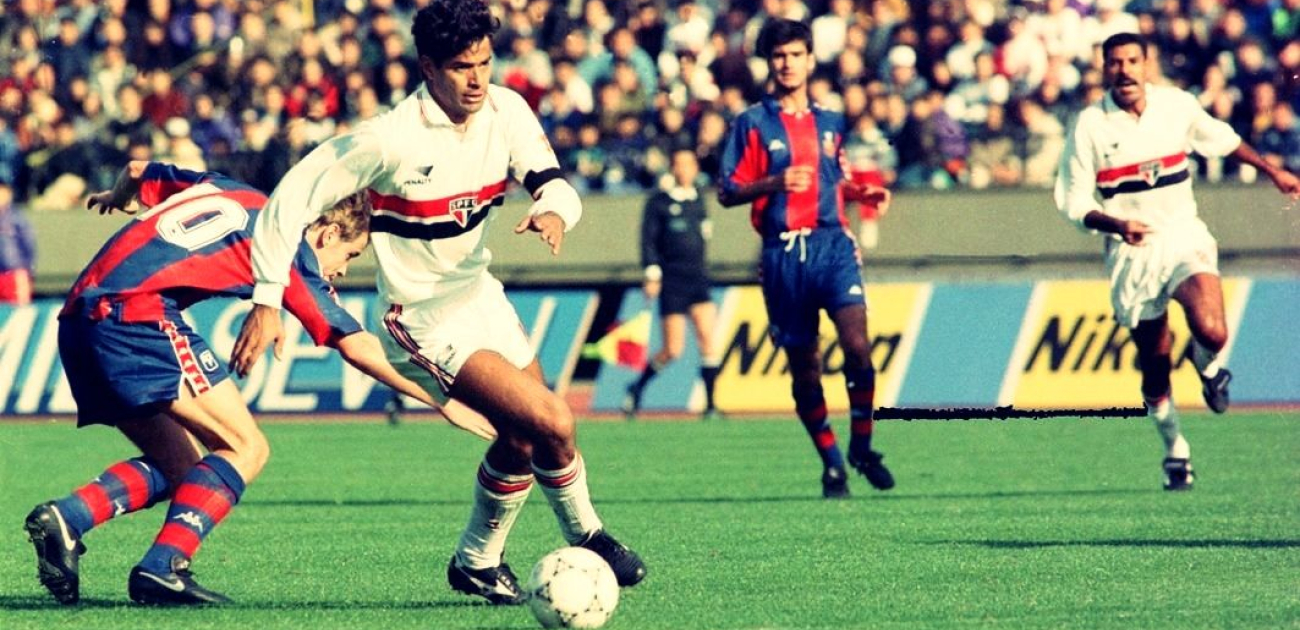Raí And The Politics Of Football
In the field of the arts, movements that suggest a revision of supposedly creative monotony and that are received, in some way, by the mainstream, result in the formulation of propositions that decree the end of classical techniques. Thus, it was declared the death of painting, sculpture and other manifestations considered, at certain times, outdated or conservative; and the disappearance of musical styles and groupings was also anticipated, for the same reasons.
The work - or the object - called Fountain, sent in 1917 by Marcel Duchamp to the New York Salon of Independent Artists, rejected as an artistic creation by the organization of the event, is, in this sense, an emblematic case1.
Despite the influence of that artist on the following generations, felt until today, the subjugated techniques, in themselves, not only resisted, but recovered his reputation and value. The story (or the story), however, started to be revised or rewritten, and contributed to the development of the debate about the ethical and aesthetic functions of art. That is what, with due regard for differences, is the subject of this text.
Football, as a sporting and cultural - and artistic manifestation - will therefore not cease to exist. In fact, José Miguel Wisnik, in his fundamental Veneno Remédio - Football and Brazil (Companhia das Letras, 2008), demonstrates that, on the contrary, the existence of football, in ethereal or rudimentary forms, precedes, in centuries, its conception contemporary. The reform movements then served as drivers of systemic evolution. The grandeur of the global football industry confirms the proposition.
In Brazil, however, football activity, for endogenous and exogenous reasons, is still underdeveloped, despite the richness of its components, which intensified the certainty regarding the immediate need for reformulations - which are resisted by the beneficiaries of the program. cartolarial system, in the name of the (fallacious) defense of the preservation of popular interest.
The problem consists in the fact that continuity implies a very high price to society - in other words, priceless, in view of the people's impotence in the face of the undue appropriation and emptying of public coffers - and it only serves the individual interests of a small group. agents who took possession of the collective thing and extracted its vital elements from it, to the point of breaking it, repeatedly and shamelessly, and externalizing its effects and costs.
That is why the ethical debate is, at this moment, really as or more essential than those that packed the transformations - and evolutions - promoted in the field of the arts.
There has always been an attempt at political framing of the footballer. It is up to him to play and comment on topics related to the game, according to invariable standards; at best, your image or opinion serves other people's political purposes.
Despite the construction of a kind of dome, Brazil is relatively lavish in the generation of athletes who do not comply with the established standards: Tostão, Paulo César Caju, Afonsinho, Sócrates, Casagrande and Paulo André are some examples.
At the club level, subservience also marks the relationship with power. This is when the people who run club policy are not confused to take on relevant roles in government structures for their own benefit.
This pact, which is not benign, forged the creation of a caste that, despite integrating, from the legal point of view, some statutory organ of the club, in practice acts in a parasitic way. Football and the club itself thus became a way of survival (or springboard) for realizing the real personal projects of managers.
The economic and financial status of almost all Brazilian clubs is the result of this model, which, even in times of pandemic, has been defended; before in a covert way, now wide open and organized, politically (Bill 2.125 / 20, received a day ago by the Chamber of Deputies as an emergency, is the newest product of the reactionary movement).
It is not intended to save football, players or clubs; one fights, without shame, for the preservation of a class.
The same class that is horrified when a player - once a player, always a player - and currently a professional director, breaks with the code of silence and speaks on topics essential to the Nation.
Raí's courage, in exposing his opinion in an intentionally divided society, is inversely proportional to the cowardice of the agents who intend to use the fact for framing not only the Captain - this is how the PSG fans still reverence him, this is how São Paulo fans should respect him - but from the whole category of players and ex-players. The organized reaction to Raí's speech is directed, therefore, to all the productive agents that integrate the system and that intend, in some way, to discuss its problems and propose evolutionary modifications.
Perhaps we are witnessing the most relevant moment in the history of soccer politics: at the same time that the consolidating perspective of a reforming and saving project, coming from the proposals of Federal Deputy Pedro Paulo (DEM / RJ) and the Senator of the Republic, is advancing Rodrigo Pacheco (DEM / MG), opens up the defense of the aforementioned new projectile of law2, which, rather, has the purpose of ending the construction of a sustainable and dignifying regulatory framework.
It is in the midst of this tension that Raí's speech was spoken; and because of it, too, what interested reactions have articulated and will maintain the silencing momentum. But history will reserve the right place for idealists (and the just) and will be relentless with opportunists.
Do you want more information?
 Rodrigo Monteiro de Castro
Rodrigo Monteiro de CastroRodrigo Monteiro de Castro is specialized in corporate and business laws, corporate transactions (M&A), capital markets and contracts.

